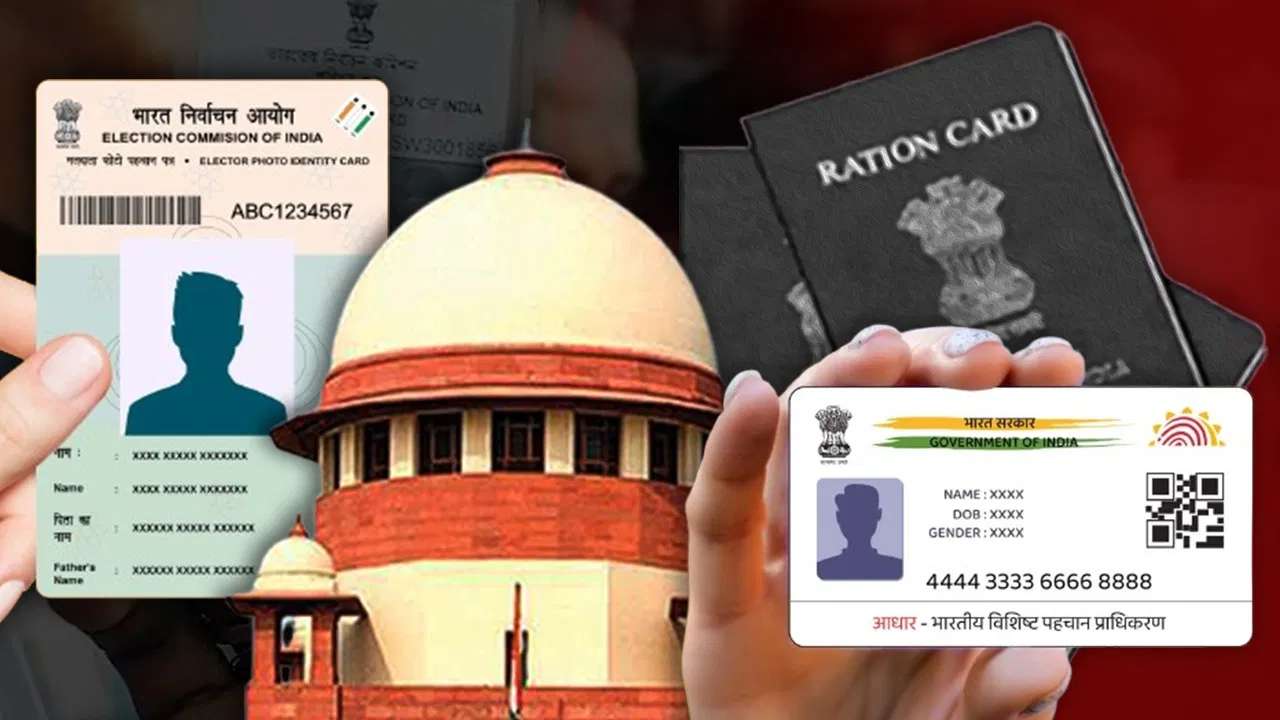Bihar Voter List Revision: Has an invisible threat to democracy in Bihar surrounded? Will the right to vote now be burdened with documents? And is all this just a voter list reform or the strategy of changing electoral mathematics? The first faster echo of the 2025 election season has arisen from Bihar. But this echo has not come from a rally or sloganeering, but from a list, the voter list, which is being called Special Intensive Revision – Sir. Nam may take a general, technical process but it is no less than a political explosion in the political streets of Bihar. Controversy has arisen over this, the courts have become active, the opposition is an attack on the government and the common people are surrounded by questions.
When the 2003 proof started to be sought before casting votes
The aim of the process going on in Bihar at this time is to clean and correct the voter list. Removing old and dead names, adding new voters, eradicating duplicate entry. But here is a twist, and that is making the entire process suspicious. Those who were not recorded in the 2003 voter list are now being sought to prove citizenship, birthplace and age. And if he is unable to give, then he can be excluded from the voter list. Legally this process may seem correct, but when you look at the ground truth, the picture becomes scary. Bihar’s millions of voters, especially poor, rural, migrants, Dalits, Muslims and youth who do not have documents like birth certificate or passport are suddenly trapped in a vortex of uncertainty.
Democracy paper test
In this revision, the documents that have been given priority, there are many that do not have ordinary citizens such as a certificate of leaving school, birth certificate or passport. Although documents like Aadhaar card, ration card and driving license are found in every household, they were not initially considered as the main identity card. The Supreme Court also had to intervene on this. The court clearly stated that ECI should consider to be valid as documents like Aadhaar and ration cards. But by then hundreds of BLOs (booth level officers) started going from house to house to fill the form, demanding documents and those who did not have, their names started in the objection list.
Election timing
This entire process would have been normal if it was not happening just before the election. The Bihar assembly elections are likely at the end of 2025, and the voter list revision started rapidly in the same year-August of the same year. Why did questions arise now? Is this an attempt to influence a particular vote bank? Is this an attempt to keep out the communities that are considered anti-incumbency? Opposition parties have called it electoral engineering. Some have given it the name of paper-based NRC where voting rights are being taken away in the name of proving citizenship.
Migrants crisis
Millions of people from Bihar live in cities like Delhi, Mumbai, Punjab and Bangalore for work. For such migrant laborers, this process is no less than a crisis. They will have to return to their homes and give documents to the BLO. Those who cannot come, their names can be removed. That is, the one who returns to the village will vote, this rule has suddenly become the limit of democracy.
Election Commission vs. Ministry of Home Affairs?
Law experts say that it is the job of the Election Commission to prepare a voter list, but confirmation of citizenship of the Ministry of Home Affairs. Now that the ECI is asking for citizenship documents from voters, the question arises, is it going out of his jurisdiction? The Supreme Court has also underlined that the Election Commission does not need to investigate citizenship, only it should be decided that the person is 18 years old and is Indian. But when citizens are being asked whether your name was in the 2003 list? Then it is natural to doubt the intention of this process.
Is it weakening democracy?
Universal franchise is a fundamental right in India. But today in Bihar, the same right seems to be trapped in a complex form, documents and BLO verification. The possibility is that millions of people, especially poor, women, elderly, transgender, travelers and youth who will not be able to fulfill these conditions may be deprived of the right to vote. And if millions of people are excluded, the election results can also be unilateral.
Court monitoring, but restlessness in public
At present, the Supreme Court is not in favor of stopping this process completely. But he has raised many questions, and warned the Election Commission that no person should be removed from the voter list without just reason. When the draft of the voter list is released on 1 August 2025, perhaps the biggest shock will be when people will see if their name is in the list or not. And when the final list comes on 30 September 2025, then it will be decided how inclusive and fair the democracy of Bihar is really.
No paper, no vote?
Special Intensive Revision is an important process in Bihar, but the manner in which it is being implemented has become a big question mark on electoral impartiality and civil rights. Will democracy now remain only for those who have the right form and correct documents? Will the common citizen now have to pass the Test of Provided Your Indianness to vote? The upcoming election will give the biggest answer to the success or failure of this process and perhaps a warning for the rest of the country. Paperwork is now necessary before casting votes in Bihar, otherwise out of democracy. Will the Bihar election of 2025 start a new era of document based voting? Or will you give birth to a large public?










